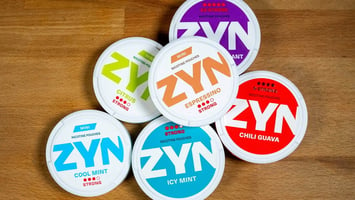The nicotine pouch market in the US is growing rapidly, but so is regulatory scrutiny. The FDA’s latest import alert (#98-06) illustrates one thing clearly: products without the required marketing...
Demystifying the PMTA Pathway for Nicotine Pouches: Key Challenges and Opportunities
Nicotine

Feb 21, 2025 | Published by Broughton
Nicotine
The U.S. Food and Drug Administration (FDA) has set out a rigorous regulatory framework for nicotine-containing products, with the Premarket Tobacco Product Application (PMTA) pathway being a critical requirement for market access. For nicotine pouches, an innovative category gaining traction among adult consumers, navigating the PMTA process presents unique challenges and opportunities. Understanding these regulatory hurdles and developing a strategic approach is essential for manufacturers aiming to achieve compliance and secure market authorization.
Understanding the PMTA Pathway
The PMTA is a comprehensive application that must demonstrate a product is appropriate for the protection of public health (APPH). This involves providing scientific data to substantiate claims of product safety, consumer acceptability, and potential public health impact. Unlike traditional tobacco products with well-established regulatory precedents, nicotine pouches must establish their place within the PMTA framework, requiring detailed scientific evidence across multiple domains.
Key Challenges in the PMTA Process for Nicotine Pouches
Demonstrating Product Safety
Nicotine pouches are often marketed as a modern, smoke-free alternative to traditional tobacco products, but their unique composition and novel nature require thorough safety assessments. The FDA mandates extensive toxicological studies to evaluate the effects of nicotine exposure, as well as the potential risks posed by other ingredients. This includes chemical characterization of ingredients, stability testing to determine shelf-life, and an evaluation of potential contaminants that could impact user health.
Assessing Abuse Liability and Consumer Appeal
The FDA evaluates whether a product may increase nicotine dependence or appeal to unintended audiences, such as non-smokers and youth. Manufacturers must conduct behavioral and clinical studies to demonstrate that nicotine pouches do not present an increased risk of initiation among non-tobacco users while still offering a viable alternative for current adult users.
Comparative Risk Assessment
Nicotine pouches must be positioned within the broader harm reduction spectrum. This requires evidence showing their relative risk compared to combustible cigarettes and other nicotine delivery systems. Robust scientific studies, including pharmacokinetic (PK) assessments and human use studies, are necessary to highlight differences in nicotine absorption, user behavior, and overall exposure risk.
Addressing FDA’s Expectations on Marketing and Labelling
The FDA closely scrutinizes how nicotine pouches are marketed, ensuring that claims made do not mislead consumers. Companies must provide evidence that their marketing strategies are not likely to encourage use among non-smokers or youth. This includes detailed labelling reviews, advertising assessments, and post-market surveillance plans to mitigate potential misuse.
Opportunities for Nicotine Pouch Manufacturers
With the increasing global focus on tobacco harm reduction, nicotine pouches have the potential to be recognized as a lower-risk alternative to traditional tobacco products. By leveraging scientific research and data-driven evidence, manufacturers can make a compelling case for their role in harm reduction strategies.
A well-structured regulatory approach can streamline the PMTA process. Working with experienced regulatory consultants helps manufacturers anticipate FDA expectations, proactively address potential concerns, and ensure comprehensive submission packages.
Advancements in analytical chemistry, toxicology, and behavioural science provide manufacturers with sophisticated tools to meet regulatory requirements. Integrating state-of-the-art research into PMTA submissions enhances credibility and strengthens the case for product approval.
How Broughton Can Support Your PMTA Journey
Navigating the PMTA process for nicotine pouches requires a multidisciplinary approach, combining expertise in toxicology, regulatory science, and consumer behaviour. At Broughton, we specialize in guiding nicotine pouch manufacturers through the complexities of the PMTA pathway by offering comprehensive regulatory support, scientific testing and analysis, strategic consultation, and post-market compliance solutions.
With a proven track record in nicotine product regulatory submissions, Broughton is the trusted partner for companies looking to achieve PMTA approval efficiently and effectively.
To learn more about how we can support your nicotine pouch PMTA submission, visit our website.



